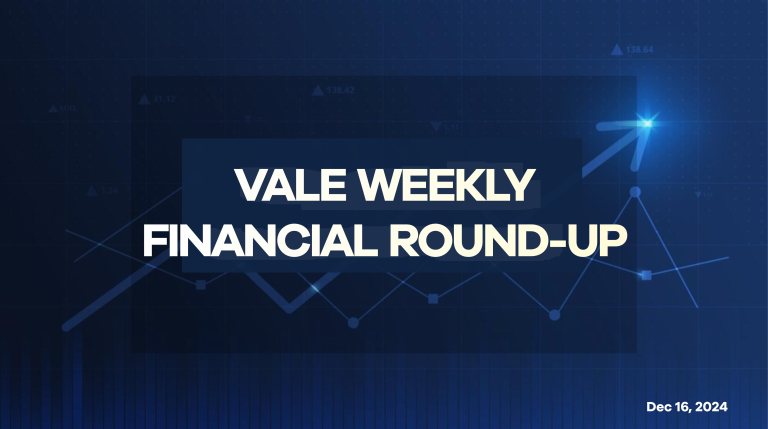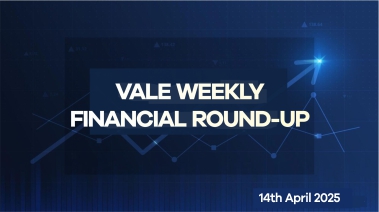Midyear Check-In: The Next Half is Yours to Shape
At the beginning of the year, you probably made a few promises to yourself and were jotting down goals in your notes app. Things like “I will save more,” “I will track my spending,” “I will build a better money habit,” or you just said to yourself, “I will do better this year, I will be more intentional.”
Now, six months in, the year seems to be racing by. Life happens: unexpected bills, black tax, and moments where enjoyment felt more urgent than financial discipline. And maybe, somewhere along the line, the goals you started with slowly got pushed aside by the day-to-day demands of just trying to stay afloat. It could be that you started saving and fell off, or you never even started. And that’s okay. You are not alone.
It’s easy to look around and feel like everyone else is getting it right. People are buying land, getting cars, announcing business and personal wins, going on vacations… Truth be told, it can make you question yourself: “Am I doing enough? Am I behind?”
You don’t have to catch up to anyone. This isn’t a football match. There’s no scoreboard. It’s okay if you’ve been surviving. It’s okay if all you’ve been doing is showing up, getting through the days, and trying to make ends meet. That in itself is something to be proud of.
Here is the truth: you don’t know what’s happening behind the scenes. You don’t know who is stressed out, who is quietly struggling to keep up or how many times they have failed and kept picking themselves back up. The only journey you truly understand is yours and that’s the only one worth measuring.
Time doesn’t stop, but it does offer us little windows like this one, right in the middle of the year, for reflection.
Now is a good time to pause and ask: where did things go off track? what can I do differently now that I know better? what do I want the second half of this year to feel like?
The answers don’t have to be perfect. But asking the questions helps you reset with clarity, not guilt. You don’t need a grand financial comeback plan. Just something simple and real. Something you can commit to, in your own way.
Start small. It could be putting something aside every payday or resisting an impulse buy. You just need something that works for you. A way to save that doesn’t stress you out, a goal that feels personal.
If you’ve been beating yourself up over “starting late,” let that go. Starting in July still gives you 6 months to make progress. That’s a lot of time to build something meaningful. And even if you’ve started over many times than you can count, that is still progress. Every time you try again, you’re learning how to do it better. That counts for something.
The second half of the year is a fresh start. An opportunity to move with more intention, not to put more pressure. You don’t need ten goals or overhaul your entire life. All it takes is focusing more on one or two goals that truly matter to you. And thankfully there are tools like the Vale app that makes it easier. The truth is, the first half may have been overwhelming, messy or may not have gone exactly as planned. But the next six months, are still unwritten and still full of possibilities. They are yours to shape.
NOW TO THE NEWS
Vale Finance Kicks Off Back to School Challenge with Exciting Rewards Up for Grabs
Vale Finance has launched its Back to School Savings Challenge, encouraging parents and guardians to start saving ahead of the September school term while earning extra rewards while saving.
The goal-based challenge allows users to set savings targets specifically for school-related expenses such as tuition, uniforms, books, and more. Participants stand a chance to earn up to 13% interest per annum on their savings, receive an extra 5% bonus for meeting their targets, and win school items worth ₦250,000(Terms and conditions apply).
This initiative is part of Vale’s ongoing commitment to help parents and guardians plan better, save smarter, and avoid last minute financial pressure during the resumption season.
The Back to School Challenge is open to both new and existing users on the Vale app.
Naira Closes Week Stronger, Gains in Both Official and Parallel Markets
The naira appreciated against the US dollar across both the parallel and official markets on Friday, reflecting a positive close to the trading week. In the parallel market, the naira strengthened to ₦1,575 per dollar, improving from ₦1,580 on Thursday. This marks a ₦25 gain since the start of the week, when it traded at ₦1,600 per dollar.
In the Nigerian Foreign Exchange Market (NFEM), the naira also recorded gains, appreciating to ₦1,537 per dollar on Friday from ₦1,543 the previous day. This represents a ₦6 improvement, according to data published by the Central Bank of Nigeria (CBN).
Over the course of the week, the naira appreciated by ₦13 in the official market, having opened at ₦1,550 per dollar on Monday. Despite the gains in both markets, the gap between the official and parallel market rates widened slightly to ₦38 per dollar, up from ₦37 recorded on Thursday.
Foreign Portfolio Investment Jumps 88% to ₦118.9bn on NGX
Foreign portfolio investment on the Nigerian Exchange Limited (NGX) rose sharply by 88.54% in May 2025, hitting ₦118.91bn—up from ₦63.07bn in April.
According to the NGX’s latest Domestic and Foreign Portfolio Investment Report, both foreign inflows and outflows increased during the month, with inflows reaching ₦66.11bn and outflows at ₦52.80bn
Total market transactions for the month stood at ₦700.50bn, marking a 45.32% month-on-month growth and a 97.11% rise year-on-year from May 2024. Domestic investors continued to dominate activity, accounting for 83.02% of trades, while foreign investors contributed 16.98%.
Retail investors led the domestic market, with participation surging by 86.12% to ₦337.46bn, outpacing institutional investors, whose volume rose slightly to ₦244.13bn.
Overall, year-to-date figures show that domestic transactions have reached ₦2.42tn, representing 70.83% of total trades, while foreign trades totaled ₦996.03bn, up significantly from the same period in 2024. The data covers equity trading and includes inputs from all active trading license holders.
Policymakers Bank on Recapitalization to Reinforce Nigeria’s Financial System
Fitch Ratings has confirmed that Nigerian banks are making steady progress toward meeting the Central Bank of Nigeria’s (CBN) recapitalization mandate, introduced in March 2024. The new capital requirements aim to restore buffers eroded by naira devaluation and strengthen the sector for long-term growth. Banks with international licenses must raise their capital to ₦500bn by Q1 2026, while national and regional banks are required to meet ₦200bn and ₦50bn thresholds respectively. Merchant, non-interest banks, and Bureaux De Change must also comply with revised benchmarks, with the latter given until December 2025.
CBN Governor Olayemi Cardoso revealed that several banks have already started raising capital ahead of schedule through rights issues and public offerings. He emphasized that the policy will enhance credit access for MSMEs, promote innovation, and support Nigeria’s goal of becoming a $1tn economy. He also noted the sector’s strength, citing non-performing loans below 5% and liquidity levels above the 30% regulatory minimum.
Industry stakeholders, including United Bank for Africa’s Group Managing Director, Oliver Alawuba, have praised the policy as strategic, saying it will help banks better absorb shocks and finance sectors like agriculture, fintech, green energy, and infrastructure. He pointed out the need for Nigerian banks to expand their asset base, which is just 11.97% of GDP.
Meanwhile, the CBN is tightening oversight, enhancing compliance and anti-money laundering measures, and focusing on building a transparent, resilient, and digitally driven banking system aligned with global standards.


